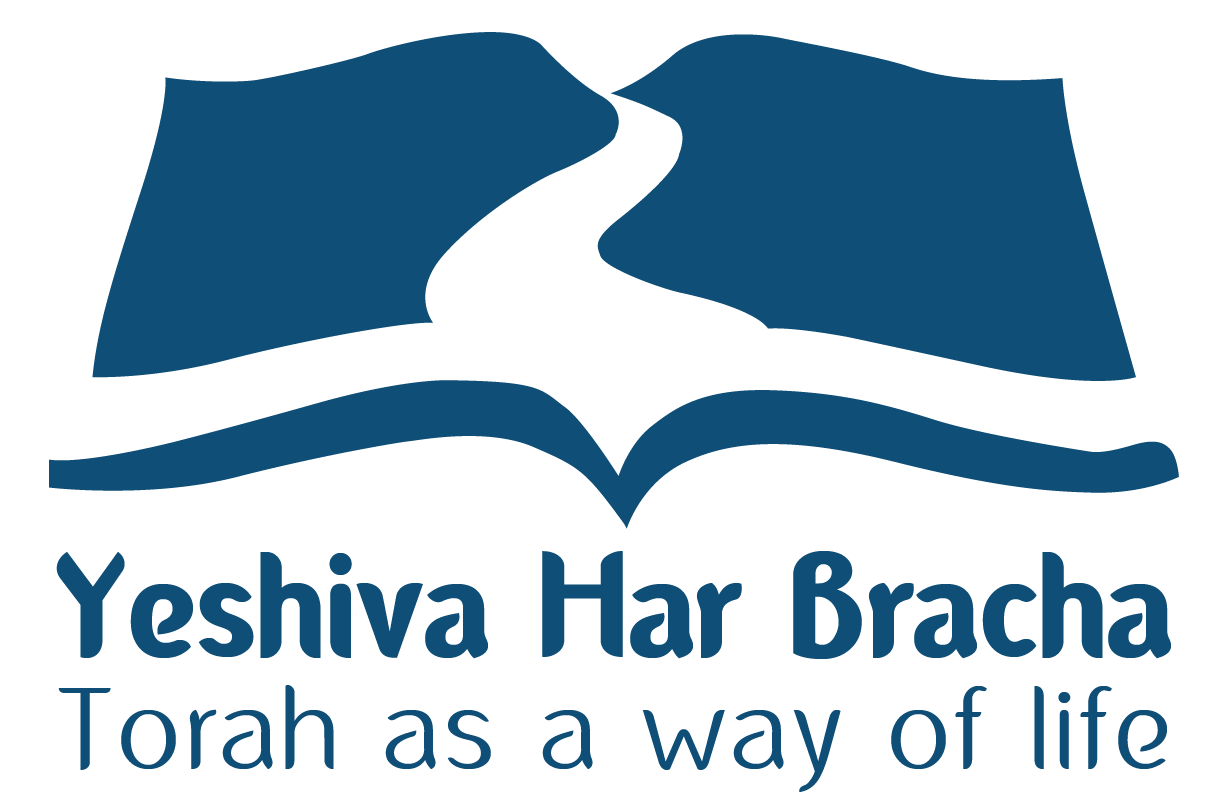The current war compels us to return to the fundamental position that the Land of Israel was given to the People of Israel by God * We must clarify to the world that this is not merely a conflict between neighbors, but rather Islam’s war against the People of Israel, and its Torah *The Priestly Blessing, like the other blessings in the Torah, is based on our meriting success and blessing in the natural way
The current war expresses a deep crisis and compels us to return to the fundamentals. For years, the State of Israel has tried to explain to the world that it is willing to compromise with the Arabs, hoping that through this, it will gain favor and support. When, despite everything, the Arabs attacked us and wickedly harmed civilians in violation of all international conventions, many in the world did not justify our war to destroy the enemy.
The problem with our fundamental position is that almost all of Israel’s official representatives do not express our absolute connection to the entire Land of Israel, a connection stemming from the fact that God bequeathed the Land to our forefathers and to us, and commanded us to settle it. Apart from a few ambassadors, such as Tzipi Hotovely in Britain and Dror Eider in Italy, our representatives do not mention the biblical verses in which God promised the Land of Israel to the People of Israel, nor quote the verses of the prophets who prophesied thousands of years ago about the return of the People of Israel to their Land, in order to make it bloom and bring blessing to the world.
Instead, they speak about security and willingness to compromise, without responding to the fundamental claim of the Arabs against us, that we came to a foreign land and dispossessed its inhabitants. With a superficial perspective, they portray the conflict with the Arabs as a conflict between neighbors that can be resolved through compromise, instead of explaining to the world that the Muslim Arabs who are fighting against us, are fighting against the People of Israel and the great idea of the Torah of Israel, and to a large extent, against the rest of the non-Muslim world.
May it be God’s will that through the holiday of Shavuot and the commemoration of the Giving of the Torah, we merit to be strengthened in the study of the Torah, which defines our national identity and our great destiny to settle all the ideas of the Torah in the Land, and thereby bring blessing to the Land, and the entire world. Through this, may we succeed in the war against our enemies, and successfully explain our righteousness to the nations of the world.
The Priestly Blessing
In these days, when we seek heavenly assistance, let us briefly discuss the laws of the Priestly Blessing in this week’s Torah portion. It is important first to clarify that the blessing we seek from God is not a blessing that will come in a miraculous way, but rather, in a natural way, for in this manner we are able to properly receive the blessing and continue to progress. However, when we merit a miracle, although the miracle saves us, we lack the tools to continue onward, which is why a crisis typically follows a miracle. And so we have learned that the blessings mentioned in the Torah, in the portions of Bechukotai and Ki Tavo, are blessings that come in a natural way.
In any case, everything we do is with God’s assistance, for even nature is sustained by God. The difference between a miracle and nature is that in the case of a miracle, according to all logical calculations we would have failed, and only because of an unforeseen event, did we succeed. When the blessing comes naturally, even according to logical calculations we could have succeeded, but we could have succeeded more or less, and God helped us to succeed more. The Priestly Blessing, like the other blessings in the Torah, is intended for us to merit blessing, success, and protection in the natural way.
The Commandment
It is a positive commandment from the Torah for the Kohanim (priests) to bless the People of Israel, as it is said: “And the Lord spoke to Moses, saying: Speak to Aaron and his sons, saying: This is how you shall bless the children of Israel. Say to them: ‘May the Lord bless you…'” (Numbers 6:22-27).
This commandment applies daily, and any Kohen who was called to ascend to the duchan (platform) to bless Israel and refused, even though according to the law he violated only one commandment, it is considered as if he violated three commandments from the Torah, because the language of command and urging for the Kohanim to bless Israel is mentioned three times (Sotah 38b; Rambam, Laws of Prayer 15:12). And even if he has already blessed Israel once that day, if he is called in another minyan to ascend to the duchan, it is a commandment that he ascend, and bless again. However, if he did not ascend, he does not violate a positive commandment from the Torah (Shulchan Aruch, Orach Chaim 128:3).
During the Priestly Blessing, each and every one of Israel must stand facing the Kohanim, and focus their mind on the blessing (Shulchan Aruch 128:23). And it is written in ‘Sefer Charedim’ (12:18) that even the Israelites standing facing the Kohanim in silence and with intention, and responding ‘Amen’ after the blessing, are partners in the fulfillment of the Torah commandment of the Priestly Blessing.
The Place Where the Blessed Stand
When the Kohanim bless, those being blessed must stand before them, as it is said: “This is how you shall bless the children of Israel. Say to them” (Numbers 6:23). Our Sages derived that the Priestly Blessing must be performed in the manner that people speak with their friends – standing face to face, and speaking loudly, so that all those being blessed can hear them.
One who stands behind the Kohanim is not included in the blessing, but one standing directly at their sides, facing the Kohanim, is included in the blessing. Those sitting in the front rows in the synagogue must position themselves relative to the Kohanim; if they are in front of them, or even right at their sides, they may remain in their place and turn their faces towards the Kohanim. However, if the place where they pray is behind the Kohanim, they must move to another place during the Priestly Blessing (Shulchan Aruch, Orach Chaim 128:24).
Anyone standing in the synagogue facing the Kohanim is included in the blessing. Even if there are tall people standing in front of them, obstructing their view of the Kohanim, or if there is a pillar in front of their place obstructing the Kohanim, since they are on the side facing the Kohanim, they are included in the blessing.
Q: What about someone who stands facing the Kohanim, but turns their back to them, such as someone standing under their father’s prayer shawl with their face towards their father, or simply looking towards the entrance – are they included in the blessing?
A: One who turns their back to the Kohanim is not included in the blessing. And although one who did not come to synagogue due to circumstances beyond their control is included in the blessing, for example, someone who had to leave for work, and women and children who are not required to come to synagogue, are included in the blessing directed towards all of Israel. However, those present in the synagogue who neglect to come and stand facing the Kohanim, are not included in the blessing (Biur Halachah 128:24, ‘Im’).
A Wicked Kohen
Q: A wicked Kohen who sins by desecrating the Sabbath, committing adultery, and theft – can he raise his hands in blessing?
A: Even one who transgresses many sins remains obligated in all the commandments of the Torah, and so too, a wicked Kohen remains obligated in the commandment of raising his hands in blessing, for the divine blessing does not come by virtue of the Kohen, but rather, from God who commanded the performance of the Priestly Blessing. Only if the Kohen sins in a way that affects his kehuna (priesthood) status, such as by killing a person, marrying a divorcee, or becoming impure by contact with the dead, is he not permitted to recite the Priestly Blessing.
The Minimum Amount for Separating Challah
Q: When a group of women gathers to knead dough for the purpose of fulfilling the commandment of separating challah, what is the minimum amount of flour required in order to be able to separate challah with a blessing, and is this amount required for each participant?
A: For regular wheat flour, one must separate challah without a blessing from a weight of 1.250 kilograms, and with a blessing from a weight of 1.550 kilograms. For whole wheat flour, one must separate without a blessing from an amount of 1.450 kilos, and with a blessing from an amount of 1.650 kilos (see Peninei Halakha: Kashrut 11:6).
This is because the dough obligated in challah is the dough that they were accustomed to preparing in the desert generation, as it is stated: “From the first of your dough you shall set aside a dough-offering” (Numbers 15:20). An “arisah” refers to the dough that they would prepare from the manna that fell in the desert every day for each person, and its measurement is one-tenth of an ephah per person, as it is stated (Exodus 16:36): “The omer is one-tenth of an ephah” (Eruvin 83b). But a dough whose volume is less than this is insignificant, and exempt from challah.
One-tenth of an ephah is a volume of forty-three eggs, and one-fifth of an egg is 2.160 liters (an egg is approximately 50 cc). Ideally, it is preferable to round up the calculation to 2.200 liters. The calculation applies to the flour before it is kneaded with water, and without the addition of salt and spices. In order to accurately measure the volume of flour, it should be measured in containers with volume markings. If unable to measure the volume, one can estimate based on weight, but since this involves an estimation that depends on the degree of compression of the flour, there is an element of doubt, for sometimes flour of an obligatory volume for challah weighs more, and sometimes less. Therefore, it is necessary to establish two measures, one for the obligation to separate without a blessing out of doubt, and the second for the obligation to separate with a blessing.
The Condition for Separating Challah from a Shared Dough by Several Women
Women who knead dough together, where each has her own dough from which she prepares her own challah, even though there is an obligatory amount for challah in the shared dough, since they intend to divide it, it does not combine to reach the required amount, and as long as there is not an obligatory amount for each one, they cannot fulfill the commandment of separating challah. And even if they bake everything in one oven, as long as each one recognizes her own baked item and insists on taking it for herself, the baked items do not combine to reach the required amount.
Therefore, women who want to bake breads or cakes together in order to merit the commandment, and none of them has an individually obligatory amount for challah, must be careful to be full partners in all the baked items until the end of the baking, in a manner that it will not be apparent whose baked item is whose. Only after baking may each randomly take a baked item for herself, meaning without any marking indicating that it is her baked item, and then, at the end of the kneading, one of them will be able to separate challah on behalf of all of them.
However, if each one distinctively shapes her own dough and insists on taking it afterwards, since they divided the doughs before baking, their doughs do not combine.
Separating Challah in a Kindergarten
Similarly, a kindergarten teacher baking challah with the children in preparation for Shabbat, and each child kneads their own dough and they affix their names to it, their challot do not combine into the obligatory quantity. Rather, until the end of the baking, all the baked items must remain equal, without any names affixed. Then, the teacher can recite the blessing for separating challah. After completing the baking, they can distribute the baked items to the children, and if they wish, affix name stickers on them.This article appears in the ‘Besheva’ newspaper and was translated








